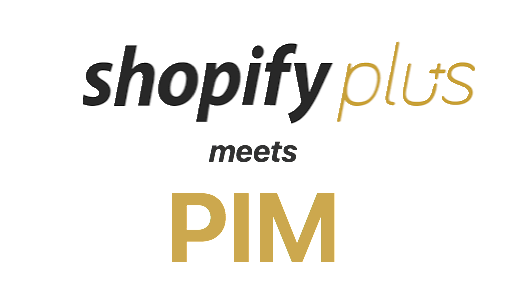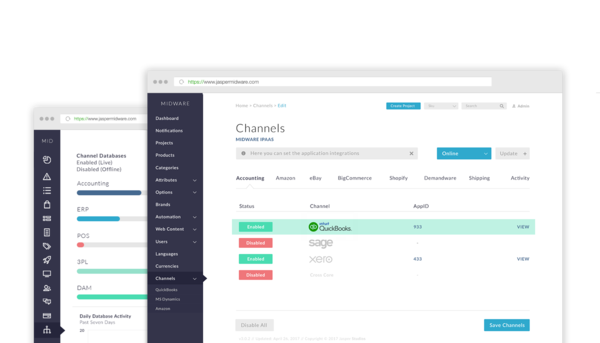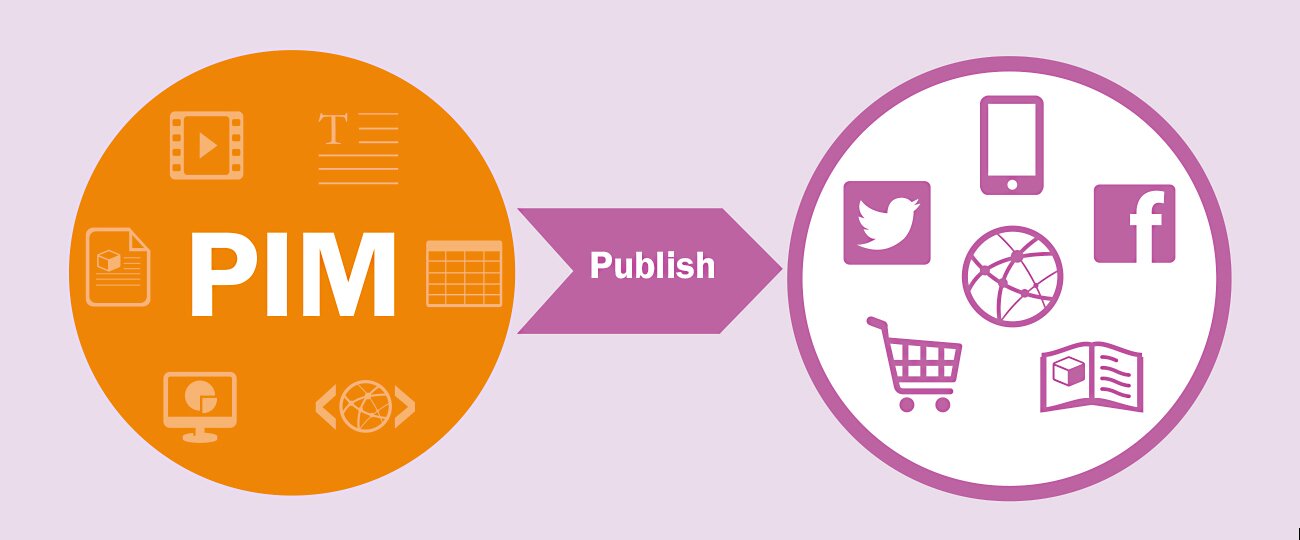- 17 August 2021
- PIM
- Reading time:8 min
Why We’re So Excited Shopify Plus PIM Integration Is Here
Great news! Shopify Plus PIM integrations are now super seamless, using third-party systems such as CommerceConnect or Pimcore.
Great news! Shopify Plus PIM integrations are now super seamless, using third-party systems such as CommerceConnect or Pimcore.

Fantastic! But wait…
What is PIM?
It’s not a traditional English liqueur many of us enjoy whisking down unremorsefully at a Sunday long lunch. Though, its benefits could leave you feeling similarly satisfied.
PIM stands for Product Information Management, and while you may not have heard the term so commonly used in the past, you can rest assured its popularity is growing rapidly. In fact, the PIM market is set to increase to over 15.7 billion USD by 2021. And, for people within the world of commerce, offline or online, it’s a must-know concept that is picking up a fast pace that traditional product management lacked.
But, for the sake of this article, let’s look at PIM from an ecommerce point-of-view. Strictly, from the view of Shopify Plus and its increasing number of merchants.
Fundamentally, PIM software (provided from third parties, such as Pimcore and CommerceConnect) manages your ecommerce master catalogue of products i.e. it takes data from multiple locations and systematically compiles it into the one location.
So, what are its immediate advantages of merchants looking for Shopify Plus PIM integration?
Merchants have the ability to edit and manage all product information at once from a PIM interface. For example, you can modify item IDs, references, catalogues, SKUs, images, localisations, documentations etc.
Who Benefits From Utilising Shopify Plus PIM?
Well, for starters, those of us wanting to launch omni-channel, international stores would see massive benefits from utilising PIM.
Why? Because if you’re expanding globally, it might be a good idea to setup multiple stores as part of the localisation process.
However… this is not to say that global businesses are the only ones that can benefit from PIM. Your Shopify Plus store might appear to have a pretty limited product count, but, you might have a high set of variables and complex customisations that can take up a lot of time and manual labour that your business just can’t afford.
Shopify Plus PIM integration sees it biggest advantages come to life for merchants who require any of the following:
High product SKU count
Frequent SKU transitions
Convoluted fulfilment options
Various product information management contributors
Challengers associated with getting products to the market
Manual data processes
High Cost-Per-Product setup
Data collection from 2 or more channels
Cumbersome existing product management structure
By incorporating a PIM onto your Shopify Plus store, merchants can provide relevant information to stakeholders, internal business operations through to suppliers, manufacturers, wholesalers and, most importantly, customers.
It’s A Huge Time Saver
As I mentioned before, integrating PIM such as Pimcore or CommerceConnect into your Shopify Plus store could see a major improvement in your business’ time efficiency and gigantuan depletion in manual data entry.
In fact, according to Goodmasters, over twenty-five minutes every year is spent on individual manual item data… imagine what that number might be if you added the combined time of every product SKU in your Shopify Plus store. Thankfully, with the automatic synchronisation that PIM software provides, this time is reduced dramatically to an average of four minutes per product.

Moreover, research conducted by Aberdeen Asset Management suggests that PIM software reduces labor costs by an average of 67%.
And, while you may be investing in the software, the cost savings are usually blatantly evident when looking at the long-tail strategy e.g. more complete, wholesome product information for customers and stakeholders equals a higher converting store. It’s all about that conversion rate.
Massive Increase In Productivity
According to the Yankee Group, merchants who have incorporated PIM software such as Pimcore or CommerceConnect into their store see a 20% increase in employee productivity.
That number not impressive enough for you? Looking at it from the other side of the spectrum might make it sound more impressive; currently, Shopify Plus merchants who do not use PIM software operate at a 30% inaccuracy rate (this is the overall pharmaceutical industry average). Having a third-party Shopify Plus PIM software, such as Pimcore or CommerceConnect organise all your information guarantees that you are presenting data that is as accurate and factual as possible.

Additionally, a report conducted by Heiler (via Jorji) reported that, companies who invested in PIM saw 23% fewer product returns.
Wow. Why is that?
Because their consumers weren’t disappointed or thwarted by the product that was delivered - they had realistic, informed expectations. They knew exactly what they were receiving because these merchants had effectively communicated, organised product information.
To summarise, PIM should act as a business performance driver. It will reach its highest potential when it is utilised as an asset to drive your businesses performance.
Does Your Store Need Shopify Plus PIM Integration?
So, now you grasp an understanding of what PIM is and what it could do to help enhance your business, you need to determine if it is necessary to integrate on your Shopify Plus store.
To help you decide, acidgreen have summarised the key benefits merchants could gain from incorporating Shopify Plus PIM integration:
Product information attributes are efficiently enriched.
PIM helps expand marketplaces your business couldn’t previously access.
Assists in driving overall sales and profit.
Get products to market faster (4x faster on average).
Enables third-parties with easy access to documents and publishing.
Allows for seamless management of product category and attribute mappings for every marketplace.
Simple back-end integration.
Creates a central management system and organises the various requirements from eCommerce channels.
Provides inventory allocation across multiple channels.
Minimises the risk of overselling.
For a smooth Shopify Plus PIM integration, it is highly recommended to look for a PIM with on-boarding support. A PIM where, “you’re going to get some support from a professional third-party that’s going to help you connect your PIM with your external systems” - John Marsella (found and CEO of Jasper Studios).
Luckily for you, acidgreen are not only your friendly, professional Shopify Experts and Shopify Plus Partner (one of the first in Australia), we’re also Pimcore Silver Partners, and we know how to successfully integrate your PIM system to drive your omni-channel success, with the need for flexibility and efficiency at the forefront of our mind.
At acidgreen, we have over 17 years of digital commerce experience, so contact us today for expert advice. We’ll hinder to your specific requirements and guide you in a direction that’s right for your business.
_
acidgreen is an award winning e-commerce agency specialising in Magento, Shopify Plus and digital marketing with over 15 years of industry experience. Our certified developers and digital marketers are highly qualified to create aesthetically pleasing Magento and Shopify Plus websites that generate the highest amount of conversions and provide the best ROI. Be sure to follow us on LinkedIn, Facebook and Twitter, or give us a call to learn more about our services.
Related articles


